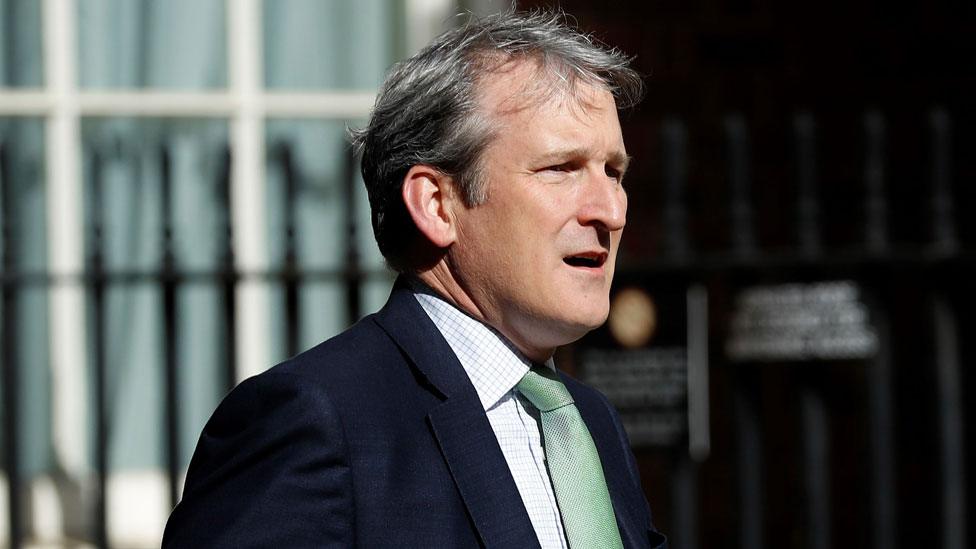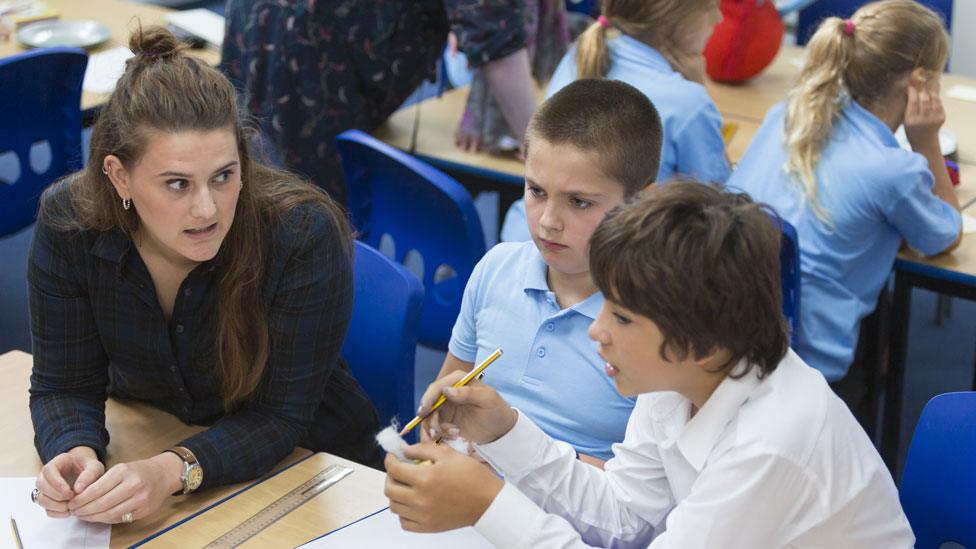School places change for domestic abuse
- Published

When a parent escapes domestic violence, it can be difficult to get their children into another school
The school admissions code in England is to be changed to make it easier for families escaping domestic abuse to switch schools, says the Education Secretary Damian Hinds.
He wants vulnerable children to get a school place "as quickly as possible".
Mr Hinds says more needs to be done for 1.6 million children who have needed support from social workers.
But the children's commissioner Anne Longfield warned of political "paralysis" in delivering such changes.
In a speech on tackling disadvantage at the Reform think tank, Mr Hinds highlighted that there was no "simplistic" stereotype about who was likely to underachieve in school.
London advantage
White British pupils were among the lowest achievers, while those who spoke English as a second language were likely to get above-average results.
Mr Hinds showed the scale of the success of disadvantaged pupils in London, who were twice as likely to get into top universities than their counterparts in other parts of England.
Young people in big cities were more likely to get good results - while those in coastal areas were particularly likely to underachieve.
He called for attention for 1.6 million children who were not in care, but who were classified as being "children in need" and whose families had been supported by social workers during the past three years.

Damian Hinds said he welcomed leadership election calls for extra spending on education
These pupils had high levels of absenteeism and exclusion, and were likely to get much lower exam grades.
"We need to improve the visibility of this group, both in schools and in the system as a whole," said Mr Hinds.
School funding
The move to improve access to schools for families affected by domestic violence follows a report in March by two charities - Hestia and Pro Bono Economics.
This called for children forced to move home to be given priority over school places.
The education secretary also responded to calls for more school funding from candidates in the race to become the new Conservative party leader and prime minister.
Theresa May, in her last days in office as prime minister, is also believed to be considering announcements over education spending.
"It's a good thing that education has been such a prominent topic in the leadership debate," said Mr Hinds.
"Part of that is about resourcing - but not only."
Mr Hinds has been under pressure from school leaders who have complained about worsening budget shortages.
"I have been making the case for investment in education - it has a unique role in its reach," he said, arguing that it was vital to social cohesion, social mobility and economic productivity.
But Mr Hinds said that the budget needed for schools would keep changing as extra demands emerged, such as for special needs.
"We will always want to do more," he said.
Brexit logjam
Implementing any announcements will depend on the outcome of the Conservative leadership contest - and Mr Hinds said he would be ready to serve under Boris Johnson, if he became prime minister.
But he warned strongly against calls for Parliament to be suspended to allow Brexit to be pushed through - describing it as a "dangerous" idea and the opposite of taking back control.
Ms Longfield, England's commissioner for children, warned that arguments over Brexit meant that "government itself has ground almost to a halt".
She said the lack of political activity meant the prospect for these disadvantaged youngsters "remains wretched".
The children's commissioner said funding decisions had not been taken and promises "to get a grip of tackling childhood vulnerability" were likely to be "delayed again".
- Published5 March 2019

- Published1 November 2018

- Published8 October 2018